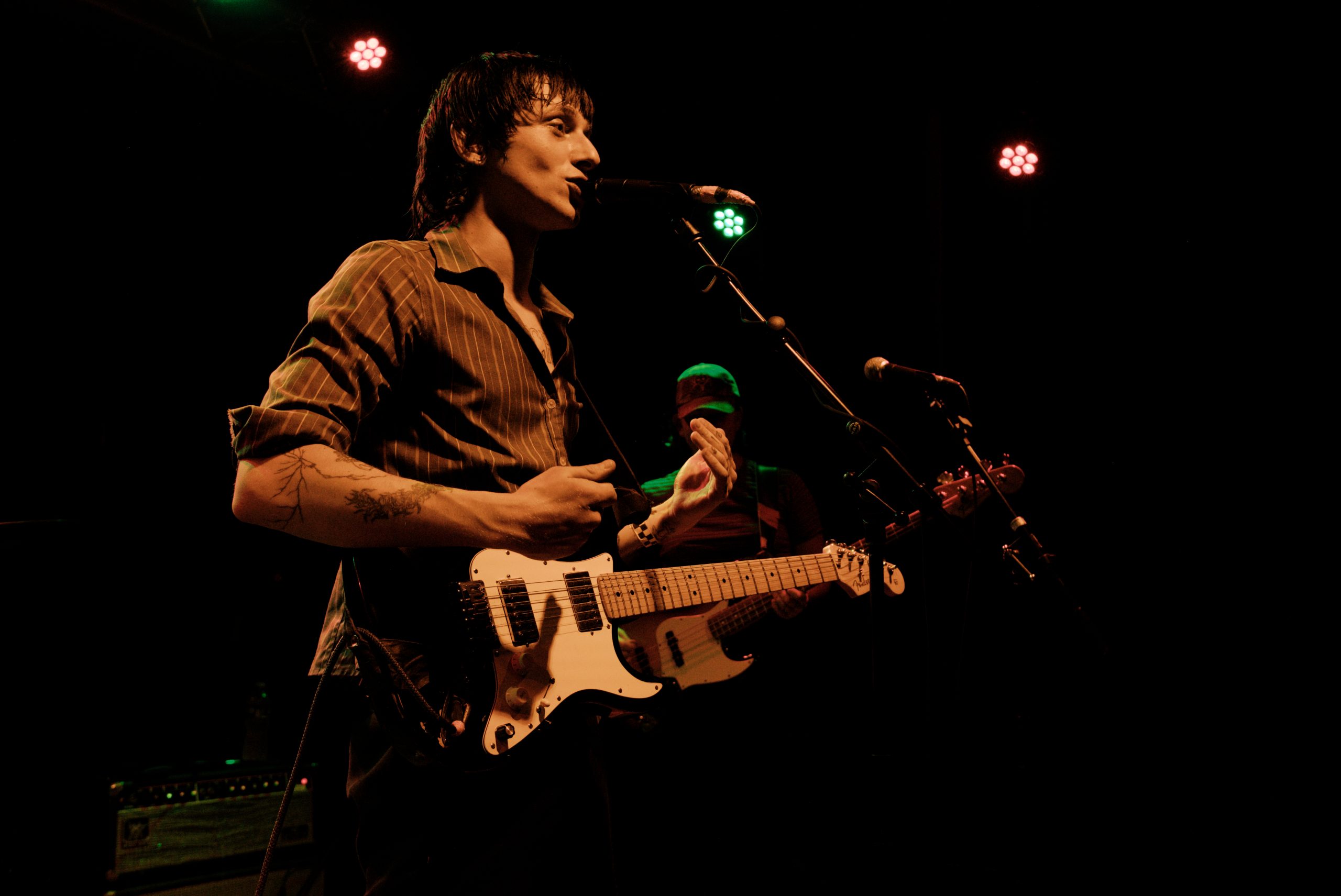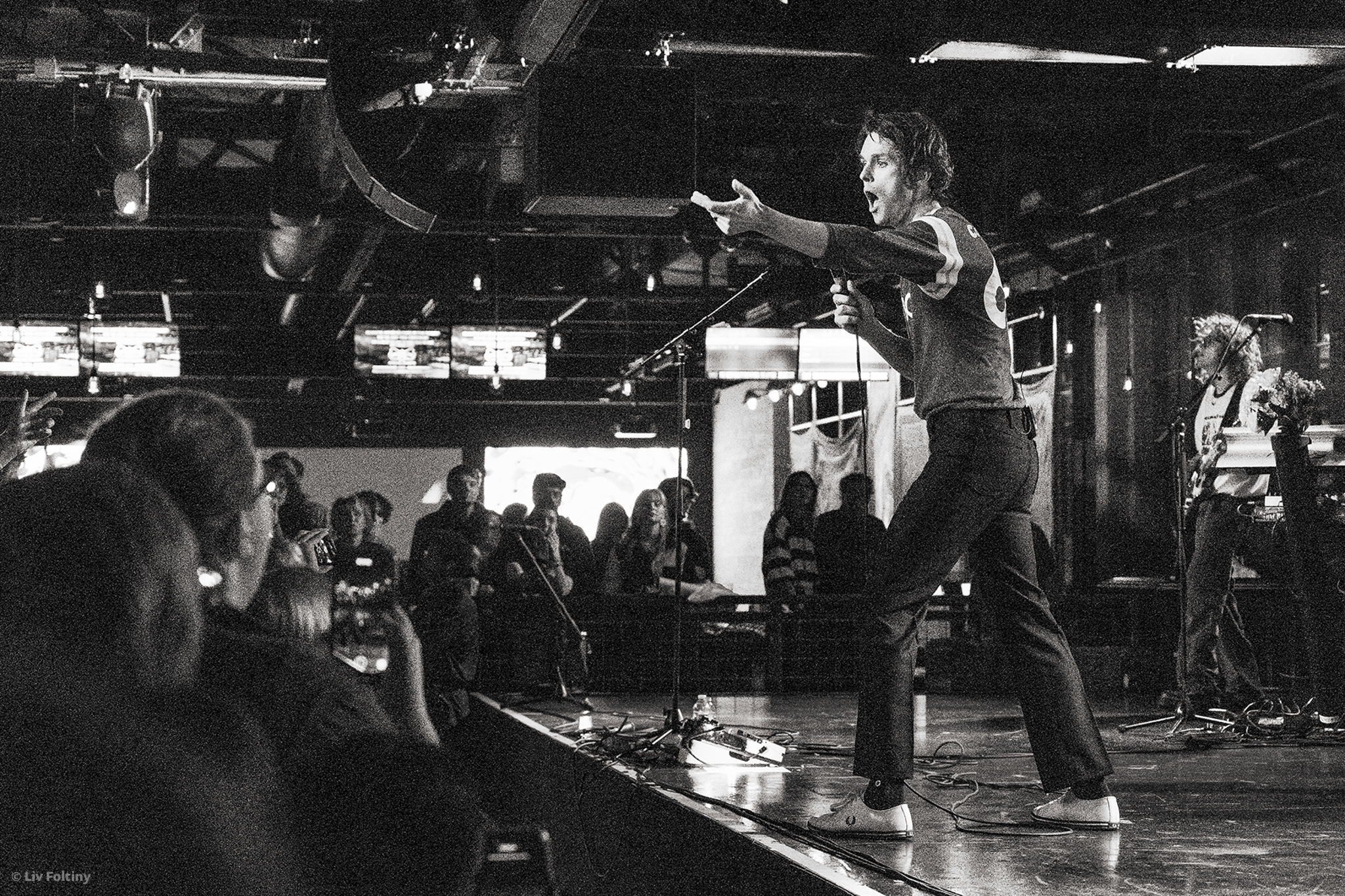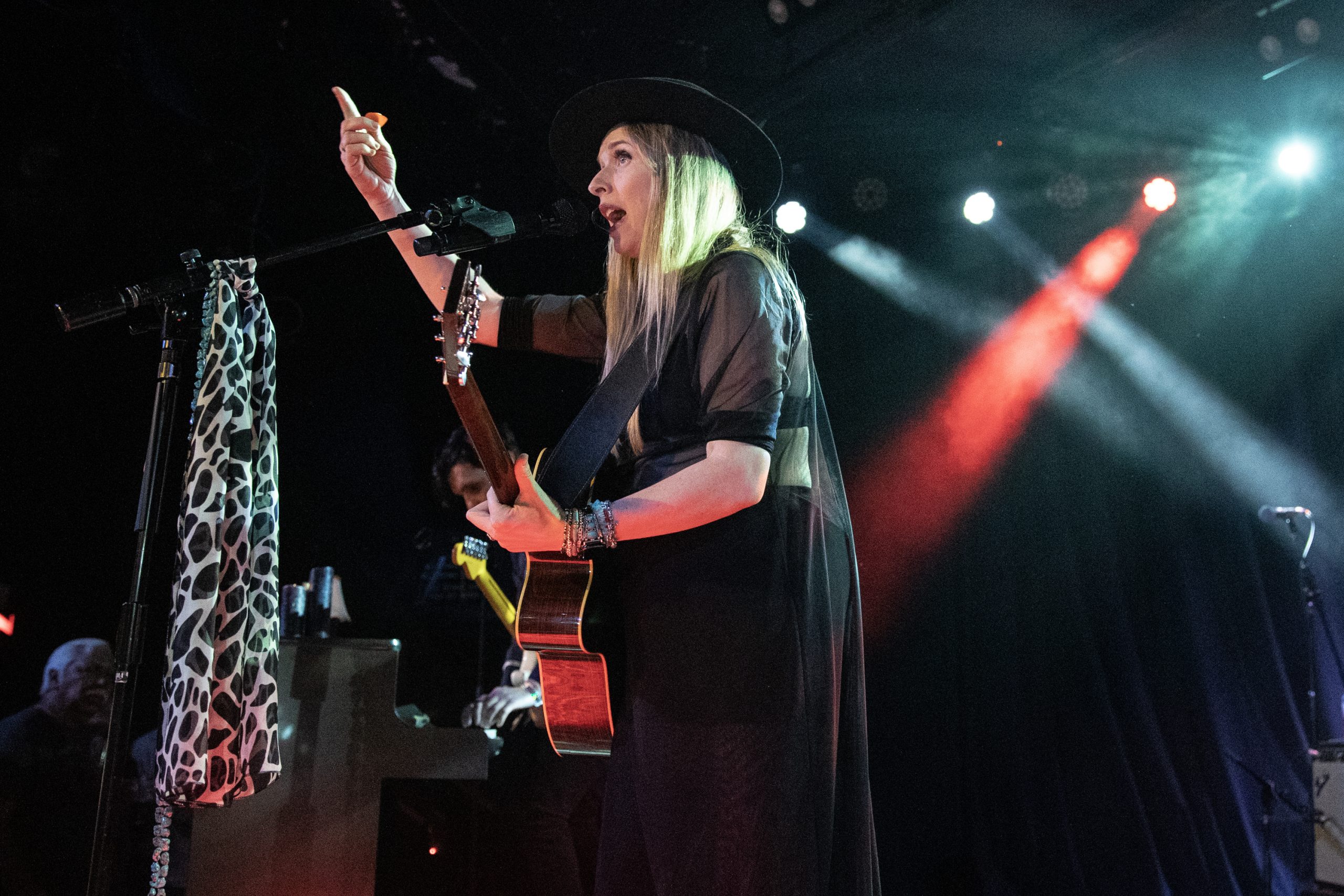By Jessica Selby
Born and raised in Chicago, Todd Carey moved to Los Angeles in the late 90s to study music at the University of Southern California. Then he began fronting the Los Angeles improv band, Telepathy. But despite causing the band so much success, Carey returned to his hometown in pursuit of a new path as a solo artist. He independently produced his debut solo album, Revolving World, in 2005. He followed that up with Watching Waiting in 2007, which was made up of songs that he tried and tested on audiences to see their reactions before he recorded them. He also released a Whitefish Bay Sessions EP with raw acoustic versions of the tracks on Watching Waiting. And earlier this year he released his newest album, After the Morning After, which he says “kind of runs the course of a relationship.” Todd says in five years, he wants to be doing music still, just on a bigger scale, with bigger shows, more music, as well as starting to produce. He just wants to be known as someone who has made an impact on those he meets.
Origivation: What got you into music in the first place?
Todd Carey: Really just the love of listening. I remember seeing the movie “La Bamba” and Ritchie Valens’ character had a Stratocaster. I was thinking, “I wanna rock one of those.” Later, I would play for my friends at these all night bonfires in Wisconsin. I would spend my summers on the beach singing and playing guitar til dawn for weeks at a time.
O: That sounds pretty awesome! What type of music do you play specifically?
TC: Rock first. I’ve always loved pop music, so I try and keep a healthy dose of that in there. You are going to see more and more improvisation as my career progresses.
O: We’re definitely looking forward to that. Are you influenced by different types of music?
TC: My first memories are driving around with my dad listening to his mix tapes and belting The Beatles and Stevie Wonder. As a teen, I got into alternative (Pearl Jam, Nirvana), and then eventually became really influenced by the Grateful Dead and Dave Matthews.
O: That’s great that you are influenced by such a variety of music. Is that variety prevalent in your ideas for songs as well? Where do you draw your inspiration from?
TC: Literally everywhere. Memories write songs for me. Most of them come from dreams. I also get them from the standard places like relationships and beyond.
O: Are you trying to send a certain message with your music?
TC: I don’t have a unified theme, I mainly try and get out of the way when my unconscious is trying to say something. Sometimes I love what comes out, and other times it surprises me. So the result is very scattered.
O: What about the touring aspect of your career? Where have you performed? What are your favorite and least favorite venues?
TC: It’s funny, the ones that really work for me are the least expected. I’m not superstitious, but there is some sort of magic factor that goes into a great show/venue. First it comes internally; how connected and focused am I on this particular evening, and how responsive/energetic is the audience? Chicago, my hometown, has always provided hot shows. Recently, my new favorite is Rockwood 2 in New York. My record release show had the perfect combination of an energetic club atmosphere and a very attentive audience. World Cafe Live is another one at the top of my list for obvious reasons. It is hard to beat.

O: What are your most frequently performed songs?
TC: “Watching Waiting,” which is the title track from my first album, just continues to resonate with me and my audiences. It works for me every time I get up on a stage. “After the Morning After,” the title track of my new EP, is also one that is working really well for me at shows right now.
O: What about covers? Do you perform any on a regular basis?
TC: As a joke, I started playing a cover of the Super Mario Brother’s theme song. I had never actually won the game as a kid, and finally finished it as an adult. Learning it was like victory celebration. One of the first times I played it was in Philly (and really one of the only times I had planned to). I had no idea it would become such a huge thing with all my fans; I get asked to play it now at every show.
O: Speaking of fans, have you had any strange experiences with fans?
TC: (Laughs) I have a song about stalkers called “Back off Baby.” But that being said, I have a very unique and personal relationship with my fans. I can count the number of artists on my left hand who are as in touch with their listeners personally on a daily basis as I am. This obviously comes through social networking and beyond, but it really becomes something bigger than the fan/artist relationship.
O: So if the crazy fans aren’t the biggest challenge of the music industry, what is?
TC: Finding a home for what I love to do, and making it work.
O: I’m sure fans and others trying to get into the music industry want your advice. Do you have any?
TC: I think that you get into music because you have no choice. It is the only thing you can do. And I think that is the only way you can survive as an artist. That fire creates something.
O: What is you ultimate direction as an artist?
TC: It’s instinctual, but it is also dictated again by what comes out unconsciously. Improvement always takes the lead though. Every night that I get onstage I’m trying to make it better than the night before. Every song I write I try and give it something new to make it communicate better with a listener. It’s all about moving forward.
O: Any other thoughts?
TC: Thanks to Origivation for helping out with growing the music scene. You guys are totally supportive of the arts and music through your magazine and the shows you put up locally. I’m really proud to be a part of what you do!







